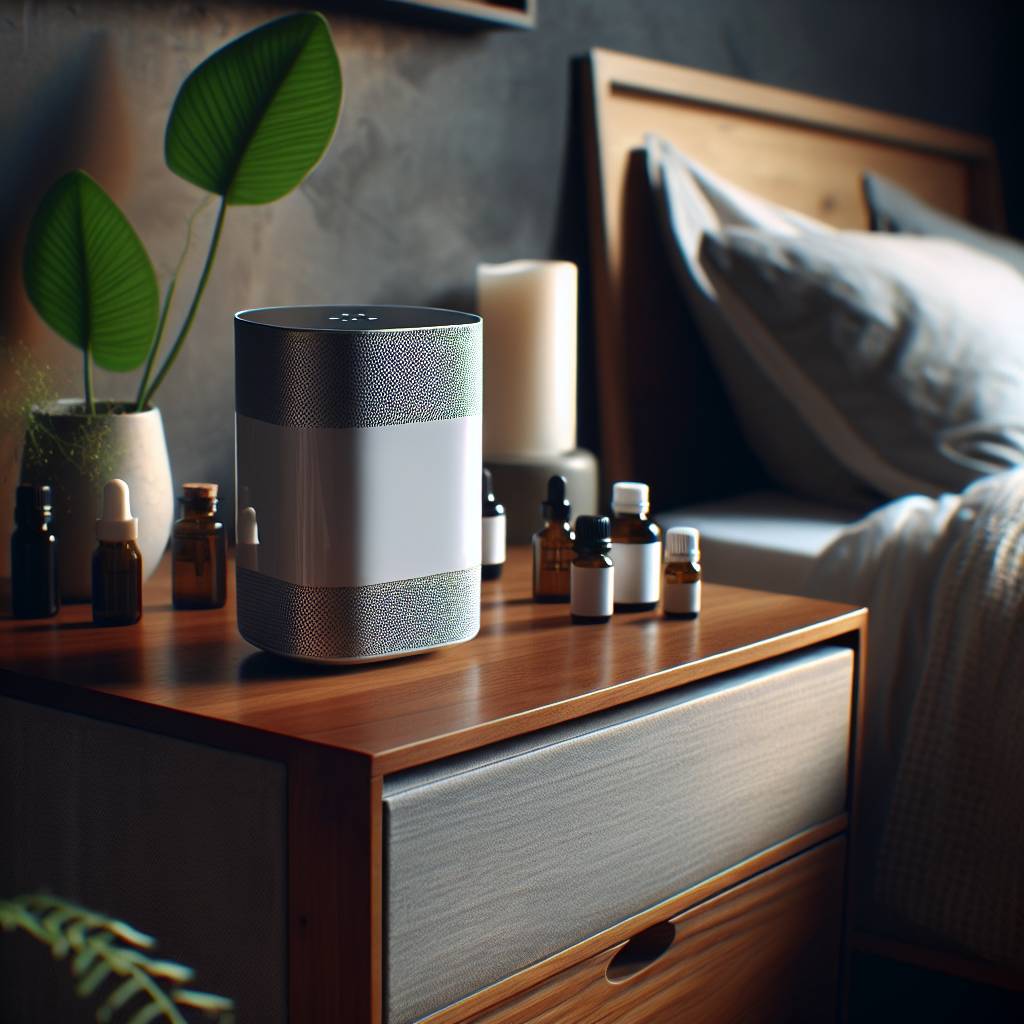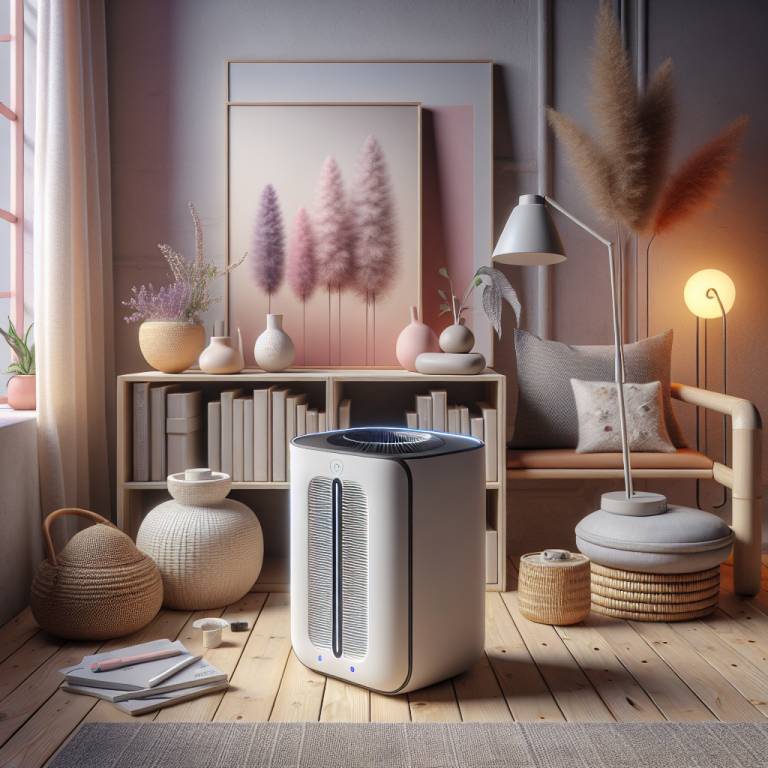Essential oils and air purifiers: A good combination for asthma?
Using essential oils with an air purifier for asthma management is not advisable. Essential oils can irritate the airways and worsen asthma symptoms in some people. Air purifiers help remove allergens and pollutants from the air, which can benefit asthma sufferers. It’s best to use an air purifier alone for managing asthma.

What Are the Benefits of Using Air Purifiers for Asthma?
Air purifiers play a crucial role in creating a healthier living environment, especially for individuals suffering from asthma. These devices work by removing contaminants and allergens from the air, which are common triggers for asthma attacks. By filtering out dust, pollen, pet dander, and smoke, air purifiers help reduce the likelihood of respiratory distress.
Moreover, using an air purifier can significantly improve indoor air quality. This is particularly beneficial for asthma patients who are sensitive to airborne particles. Cleaner air means fewer irritants that can provoke asthma symptoms, leading to a more comfortable and safer home environment. This contributes to better sleep quality and overall well-being for individuals with asthma.
Can Essential Oils Be Safely Used in Conjunction with Air Purifiers?
Integrating essential oils with air purifiers has become a popular trend for enhancing indoor air quality. However, it’s important to approach this combination with caution, especially for those with asthma. While certain essential oils are known for their therapeutic properties, not all are safe or beneficial when diffused into the air that asthma patients breathe.
Elevate your lung health with the power of essential oils. Identify beneficial oils and learn to use them correctly.
To ensure safety, it’s advisable to select essential oils that are non-irritating and to use them sparingly within an environment where an air purifier is operating. Consulting with a healthcare provider before introducing essential oils into an asthmatic’s environment is also recommended. This precaution helps prevent potential adverse reactions triggered by inhaling specific aromas or compounds present in some essential oils.
Which Essential Oils Are Known to Benefit Asthma Patients?
Lavender oil is widely recognized for its calming effects and ability to ease breathing difficulties associated with asthma. Its anti-inflammatory properties make it a suitable choice for reducing respiratory inflammation. Peppermint oil is another option that can help relax the muscles of the respiratory tract, promoting easier breathing.
Eucalyptus oil contains eucalyptol, which may help break up mucus and improve airflow in the lungs. However, it’s important to note that while these essential oils can provide relief from certain symptoms, they should not replace prescribed asthma treatments or medications. Always consult with a healthcare professional before incorporating any new element into your asthma care routine.
How Do Air Purifiers Work to Remove Asthma Triggers from the Environment?
Air purifiers remove asthma triggers through various filtration technologies. The most common type used in homes is High-Efficiency Particulate Air (HEPA) filters. HEPA filters capture 99.97% of particles as small as 0.3 microns in size including dust mites, pollen, mold spores, and pet dander—all known triggers of asthma attacks.
In addition to mechanical filtration like HEPA filters, some air purifiers also incorporate activated carbon filters which absorb odors and chemical vapors that could irritate sensitive lungs. By combining these technologies, air purifiers effectively cleanse the indoor atmosphere of pollutants and allergens that exacerbate asthma symptoms providing relief and support for individuals affected by this condition.
| Essential Oil | Effect on Asthma | Recommended Use with Air Purifier |
|---|---|---|
| Rosemary | Can improve circulation and reduce stress, but may also increase bronchial spasms in individuals with asthma | Not advisable for use in air purifiers as it may trigger asthmatic reactions |
| Frankincense | Claimed to reduce inflammation and relieve anxiety; however, its effects on asthma are not well-documented and could be harmful | Exercise caution and consult healthcare professionals before using in conjunction with air purifiers for asthma management |
| Chamomile | Known for its calming effects, yet it’s a common allergen that might trigger asthmatic responses in susceptible individuals | Avoid using within air purification systems aimed at controlling asthma symptoms due to potential risk of allergic reaction |
| Lavender | Potentially soothing, but can be an irritant for some individuals | Use with caution; monitor for any adverse reactions |
| Eucalyptus | May help clear nasal congestion, but risks triggering asthma symptoms in sensitive individuals | Not recommended without consulting a healthcare provider |
| Peppermint | Could provide relief from nasal congestion, yet poses a risk of worsening asthma symptoms for some people | Avoid direct use in air purifiers; consider other forms of application after seeking medical advice |
| Tea Tree Oil | Antibacterial properties, but high potential to irritate the respiratory tract and exacerbate asthma symptoms | Avoid using in air purifiers intended to manage asthma symptoms |
| Lemongrass | Might have calming effects, but lacks sufficient research on its impact on asthma. Known to cause allergic reactions in some cases. | Use with extreme caution or avoid altogether due to potential risks of worsening asthma conditions. |
What Precautions Should Be Taken When Using Essential Oils with an Air Purifier for Asthma?
When using essential oils with an air purifier, it’s important to choose oils that are safe and beneficial for asthma sufferers. Some oils can trigger allergic reactions or worsen asthma symptoms. It’s best to consult with a healthcare provider before adding essential oils to your routine.
Also, ensure that the air purifier is designed to work with essential oils. Not all purifiers are equipped for this, and using oils in a device not intended for them could damage the machine or reduce its effectiveness in cleaning the air.
Are There Any Specific Types of Air Purifiers That Are More Effective for Asthma Sufferers?
Air purifiers with HEPA filters are highly recommended for people with asthma. These filters capture fine particles, including common asthma triggers like dust mites, pet dander, and pollen. HEPA-filtered air purifiers can significantly improve indoor air quality and help manage asthma symptoms.
Additionally, air purifiers that include activated carbon filters can remove odors and volatile organic compounds (VOCs) from the air. These substances can also trigger asthma attacks, so having a purifier that addresses them can be beneficial.
How Can Someone Integrate Essential Oils and Air Purifiers into Their Asthma Management Plan?
To integrate essential oils and air purifiers into an asthma management plan effectively, start by identifying specific triggers and symptoms that you want to address. For example, if dust is a major trigger, focus on using an air purifier with a strong HEPA filter in areas of your home where dust accumulates.
For incorporating essential oils, select ones known to support respiratory health such as peppermint or eucalyptus oil. Use these in moderation through a diffuser compatible with your air purifier if possible or apply them topically after consulting with a healthcare professional. This combined approach can enhance the overall environment for someone managing asthma.
Final Thoughts
Incorporating air purifiers and essential oils into an asthma management plan requires careful consideration but can offer significant benefits. By choosing the right types of devices and products while taking necessary precautions, individuals suffering from asthma may experience improved symptoms and better control over their condition.
Always remember to consult healthcare professionals when making changes to your health management strategies. With their guidance and a thoughtful approach to integrating these tools, managing asthma can become more effective and less stressful.






